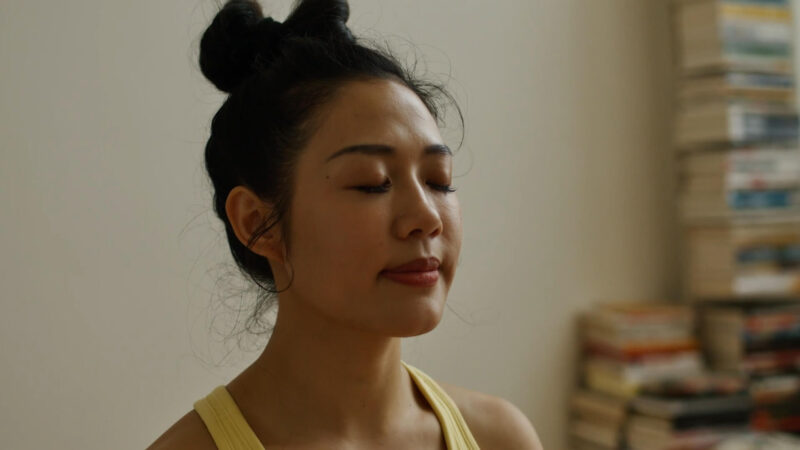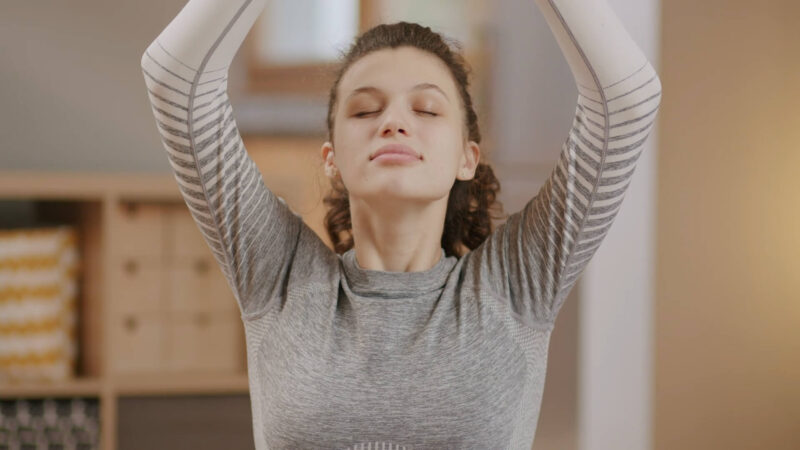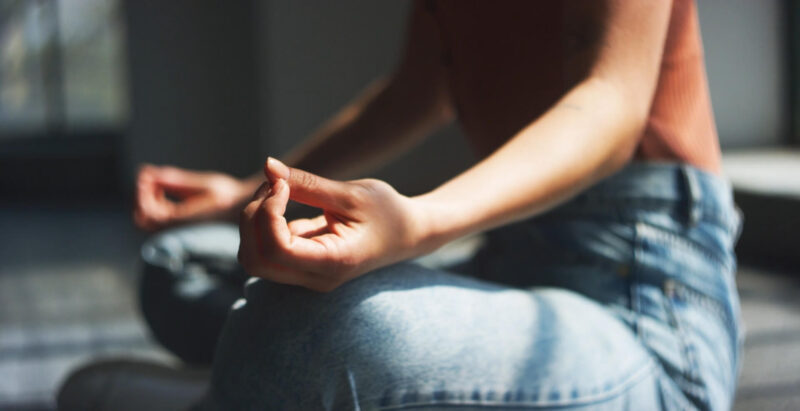Mindfulness-Based Stress Reduction, or MBSR for short, is a program that’s been proven to help lower stress and anxiety. It works just as well as some prescription pills the doctors give out for anxiety.
Learning mindfulness gives you tools for calming your mind and body during “those” moments. If you’re someone who struggles with anxiety, MBSR could make a difference for you.
MBSR Effectiveness in Anxiety Treatment

MBSR uses meditation and exercises to help you focus on what’s happening right now. It teaches you to slow down and pay attention to your body and surroundings.
And the best way to understand how it works is to check out the clinical trials.
A study by Georgetown University Medical Center found that MBSR was as effective as escitalopram, a commonly prescribed antidepressant, in reducing symptoms of anxiety. This randomized clinical trial involved 276 participants who either received MBSR training or escitalopram treatment over eight weeks. Participants in the MBSR group attended weekly sessions of 2.5 hours plus a daylong retreat and engaged in daily homework exercises. The results showed significant reductions in anxiety levels, comparable to those experienced by participants taking the medication.
Further evidence comes from a study published in JAMA Psychiatry, which also confirmed that MBSR could match the effectiveness of escitalopram. Participants in this study showed substantial improvements in anxiety scores, which were measured using standardized clinical tools.
Long-term Benefits of MBSR for Anxiety

Essentially, practicing meditation and mindfulness techniques over time can help the way people deal with stress and anxiety. As you continue with things like meditation, breathing exercises, and being more present, it leads to some significant improvements in overall mental health.
One of the primary ways this helps is by developing better coping strategies. The more you practice mindfulness, the more aware you become of your thoughts and feelings as they arise. This heightened self-awareness allows you to respond to stressful situations and anxiety triggers with more composure instead of immediately reacting. Over the long run, this can greatly reduce both the intensity and frequency of anxiety symptoms.
Practices like meditation teach people to stabilize their mindset and decrease reactivity to emotions. As such, it helps people roll with life’s highs and lows, leading to less frequent anxiety episodes. Moreover, the skills learned through mindfulness integrate into one’s lifestyle, providing useful tools that can be accessed anytime stress pops up.
Mindfulness training can help with overall mental well-being by lowering symptoms of issues like depression and generalized anxiety disorder. This is likely connected to changes in brain areas governing mood regulation and stress response. Regular practice has been linked to thicker prefrontal cortexes and better connectivity between attention/emotion centers.
Mindfulness further supports better physical health, which influences mental health. Chronic anxiety can potentially lead to high blood pressure, heart problems, and a weakened immune system down the road. However, mindfulness practices have proven benefits like improved heart rate variability and lower blood pressure. This helps prevent anxiety from negatively impacting the body long-term.
Implementing MBSR Programs

Start with the basics – Learn some simple mindfulness exercises like sitting still, walking slowly while thinking about your feet, and lying down to notice your whole body. Getting help from a mindfulness teacher online or in person can help you learn the right way to do these.
Make time every day – Set aside a regular time, like early morning or night, to practice mindfulness when it’s quiet. Doing it at the same time each day will help it become a habit. Sticking to a schedule is important.
Pay attention when you eat – Focus on how your food looks, smells, and tastes when you’re having a meal. Eat slowly and don’t watch TV or use your phone so you can truly enjoy your meal and help your digestion.
Watch your feet when walking – Go for daily walks and focus on how your feet feel on the ground with each step. Listen to sounds around you and pay attention to your breathing too.
Use mindfulness when stressed – When things get tense, pause to take deep breaths and calm your mind. This will help you see your feelings and body reactions more clearly without judging them. Then you can respond to problems in a calmer, better way.
Think back each day – Before bed, take a few minutes to think about your mindfulness practice that day. Note what went well or what was hard, and think about small changes to help you improve.
Join a group – Connecting with others can motivate you and make your practice even stronger. Sharing experiences will help you go further in your journey.
Conclusion
Mindfulness is all about being aware of your thoughts and feelings in a kind way. When life gets stressful, it helps you pause instead of just reacting right away.

